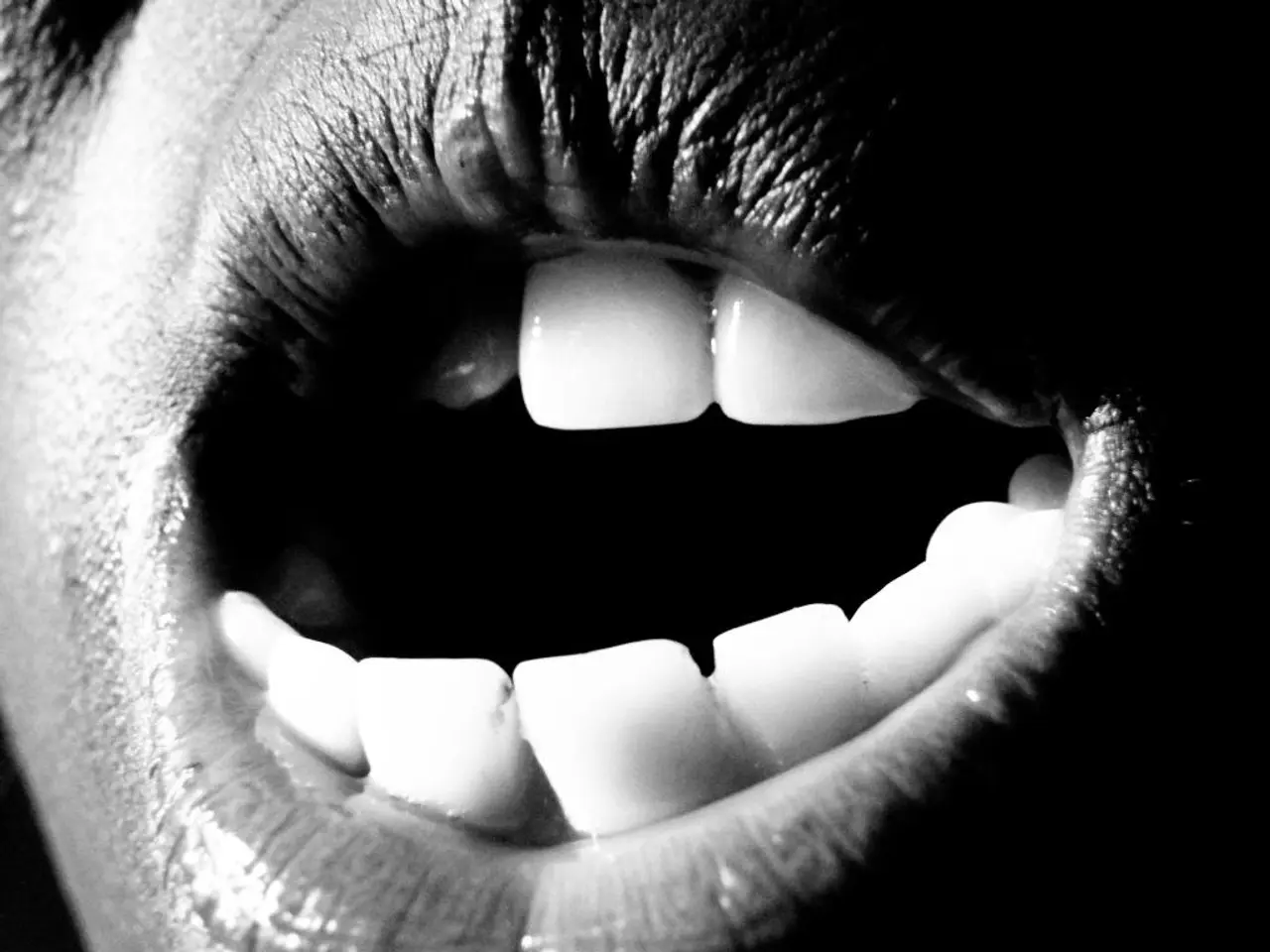Understanding and managing abnormally thick saliva: its roots and remedies
In many cases, thick saliva is a sign of dry mouth, or xerostomia, which can have several causes. These may include medications, autoimmune disorders, radiation therapy, dehydration, salivary gland obstruction, or infections.
Common Causes of Thick Saliva / Dry Mouth (Xerostomia)
- Medications: Numerous commonly prescribed drugs, such as antidepressants, antihistamines, blood pressure medications, diabetes drugs, opioid pain medications, antipsychotics, muscle relaxants, anticholinergics, hypnotics, diuretics, appetite suppressants, and expectorants, can reduce salivary flow, leading to thick, sticky saliva.
- Radiation Therapy: Radiation to the head and neck can damage salivary glands, leading to long-term reduced saliva production and thickened saliva.
- Autoimmune Disorders: Conditions like Sjögren’s syndrome target salivary glands, causing chronic dry mouth and thick saliva.
- Aging: Older adults experience declines in salivary gland efficiency and often take more medications that reduce saliva, making thick saliva common.
- Dehydration or mouth breathing: Loss of oral moisture can thicken saliva.
- Salivary gland obstruction or infection: Stones or trauma causing gland swelling affect saliva consistency.
Management of Thick Saliva / Dry Mouth
To manage thick saliva and dry mouth, several strategies can be employed:
- Hydration: Drinking water frequently to maintain oral moisture.
- Saliva substitutes or moisturizing products: Over-the-counter gels, sprays, or rinses to relieve symptoms.
- Medication review: Adjusting or switching drugs that reduce saliva when possible.
- Use of a humidifier: Especially with CPAP therapy to prevent dryness.
- Good oral hygiene: Brushing, flossing, fluoride treatments to prevent decay and infection since saliva normally protects teeth.
- Treatment of underlying causes: Managing autoimmune conditions, removing salivary gland stones, or surgery for mucoceles if present.
Implications on Oral Health
Thick saliva can lead to several oral health issues, including:
- Increased risk of tooth decay and gum disease due to lack of saliva washing away acids and bacteria.
- Oral infections such as candidiasis from imbalanced oral microbiota.
- Difficulty in chewing, speaking, swallowing, and altered taste sensation due to dry, sticky oral environment.
- Poor denture fit and discomfort.
Medications Known to Cause Thick or Reduced Saliva as Side Effects
- Antidepressants (e.g., tricyclics, SSRIs)
- Antihistamines
- Antipsychotics
- Muscle relaxants
- Anticholinergics
- Antihypertensives (blood pressure meds)
- Diuretics
- Appetite suppressants
- Opioid pain medications
- Diabetes medications (e.g., metformin)
- Asthma and COPD inhalers (due to propylene glycol)
- Over-the-counter decongestants, pain relievers.
In summary, thick saliva usually reflects dry mouth caused by decreased saliva flow due to medications, systemic diseases, or gland damage. Management focuses on hydration, symptom relief, oral hygiene, and treating underlying causes to prevent serious oral health consequences. Breathing primarily or solely through the mouth can lead to thick saliva due to mouth dryness, and thicker saliva can contribute to worse oral health.
- Some chronic diseases, such as Alzheimer's and Parkinson's, can also lead to thick saliva due to neurological disorders affecting saliva production.
- Chronic conditions like diabetes, cystic fibrosis, and ulcerative colitis can cause dry mouth, making saliva thicker.
- In the context of healthcare, understanding the predictive relationships between medications and thick saliva is crucial for workplace-wellness and medical-conditions management.
- Adequate eye-health requires a balanced diet and hydration to prevent dry eyes and macular degeneration, which can be exacerbated by reduced saliva.
- It's essential to re-target therapies and treatments to account for side effects like thick saliva or dry mouth, especially in the case of HIV medications like Paxlovid.
- Science continues to explore the role of supplements, such as CBD, in promoting oral health and alleviating symptoms of dry mouth.
- Comprehensive health-and-wellness programs should address mental-health concerns, including depression, which may be worsened by thick saliva caused by certain medications.
- Skin-care routines should also be considered in the management of dry mouth; dry skin may be indicative of dehydration or a more severe underlying condition.
- Fitness-and-exercise regimens can help manage obesity, which may reduce the need for certain medications causing thick saliva or dry mouth.
- It's crucial to recognize that some cancers and their treatments, particularly head and neck radiation, can lead to thick saliva and dry mouth.
- Health-care providers can work with patients to develop Individualized tiered plans for managing chronic diseases and their related symptoms, such as thick saliva, to improve overall health and wellness.




